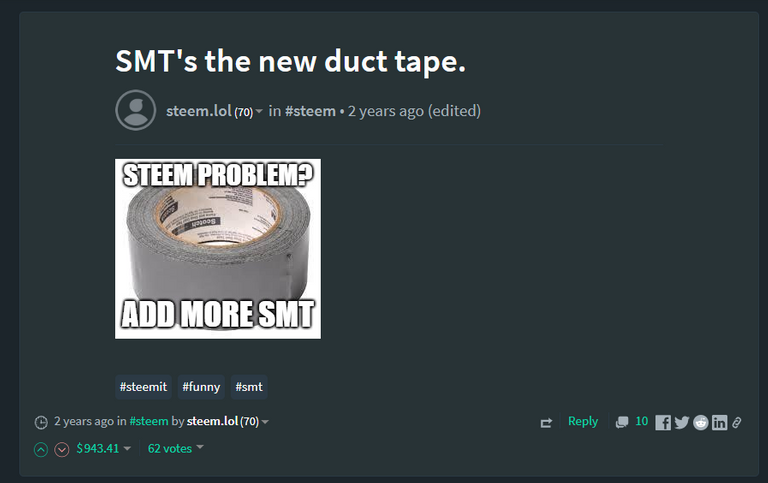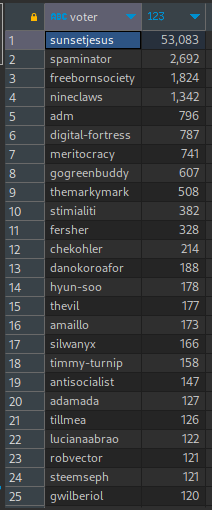There have been two posts on the Hive blockchain in the last week that define an ongoing debate about how to improve Hive and make it a better Web3 ecosystem. I'm a bit at odds with both ideas. Let's take a look at them.
The first of these, posted yesterday, is about LeoAds, a new initiative that will roll out on November 1 and showcase advertising on the Hive blockchain through InLeo (formerly LeoFinance). The LeoAds discussion has been going on for a couple of years on Hive. One group of Hivers believe that advertising will be an improvement on the blockchain and this advertising is scheduled to roll out in November. The claim from this group of Hivers is that advertising will make Hive more Web3. Every time the issue comes up, I have just one question:
How will advertising make Hive more Web3?
No one has been able to answer this question. It all boils down to additional monetization for those who choose to accept ads on their posts. But content monetization isn't Web3. It's one component of Web3 that is also a feature of Web2, particularly when it appears in the guise of advertising. Other components of Web3 include decentralization, censorship-resistance, and identity and asset protection.
The problem with advertising is that advertisers usually want to influence the message. When content creators take on sponsors, those sponsors don't want to be criticized and very often will withdraw their advertising if initiatives they support are challenged. That is not censorship-resistance.
I'll be watching the LeoAds initiative closely to see exactly how that plays out on the Hive blockchain and whether it leads to advertisers wanting more control over content messaging.
Hive5 and the Battle Over Downvotes
The other initiative being proposed is a bit more honest, in my opinion. A user on the Hive blockchain who goes by @agorise made a public post suggesting some changes to the core code of Hive that will curtail the centralization of power into the hands of a few. His proposal is organized into 12 core components.
@unklebonehead and I had @kencode on the Defluenced podcast this week to discuss his ideas. You can listen to that podcast right here:
We only got to talk about the first component of the proposed changes, which deal with the downvote feature on Hive. No one is suggesting the downvote feature be done away. Ken Code was very clear about that. However, there are some recognizable abuses of the downvote button that some people on Hive want to change.
Personally, I understand their arguments. I've never had a problem with people downvoting my content. Evidently, some people have and Ken Code names them.
The biggest issue seems to be that whales have such massive power on the blockchain that they can downvote a new user to such a degree that user ends up with a negative reputation score from which they can't recover and end up leaving the blockchain. If we were talking about child pornographers, rapists, and murderers, no one would care. But, according to Code, we're talking about legitimate content creators who post about controversial topics, and some of them have quite a following on other platforms.
I haven't researched Code's claims to see how accurate they are, but if they're even modestly accurate, then I'll admit there's a downvote problem on Hive.

There are other issues with the downvote button. For instance, I've actually witnessed downvote wars (on both Hive and Steemit) where individuals, and even groups, got into a dispute over something and busied themselves downvoting each other's content into obscurity. I've witnessed a few whales take it upon themselves to simply target someone of a weaker economic class as a "defense" for one of their friends whom the whale felt was downvoted or criticized unfairly. This, too, flies in the face of censorship-resistance. The claim that the Hive blockchain is censorship-resistant when this kind of behavior exists is weakened.
I'm not saying that Hive is not censorship-resistant. However, whales using the downvote feature as a weapon against those they don't like or agree with on matters that are not repugnant to the majority of the community certainly places those whales in a censoring position when their downvotes target those of a weaker economic class on the blockchain.
What the proposal attempts to do is mitigate the fallout from this type of behavior on the blockchain. In the real world, we have laws that protect weaker classes from those with an imbalance of power. These laws are meant to distribute justice fairly among all citizens of the population. On blockchains, which are often populated by people from all over the world and from a variety of cultures and nations, the only "law" that can address justice in a meaningful way is the code. How does the code make the system more fair for everyone such that a few don't end up dictating how everyone else behaves, what everyone else can say, and how everyone else can monetize their content and express themselves.
I'm not convinced that the proposal offers the best solution, but I do at least recognize the chutzpah of Ken Code, Agorise, and others who support the proposal. All they want to do is have a discussion. Certainly, the Hive community can give them that.
Image is a screenshot from the original post.
This post was first published by Author Allen Taylor at Paragraph.

